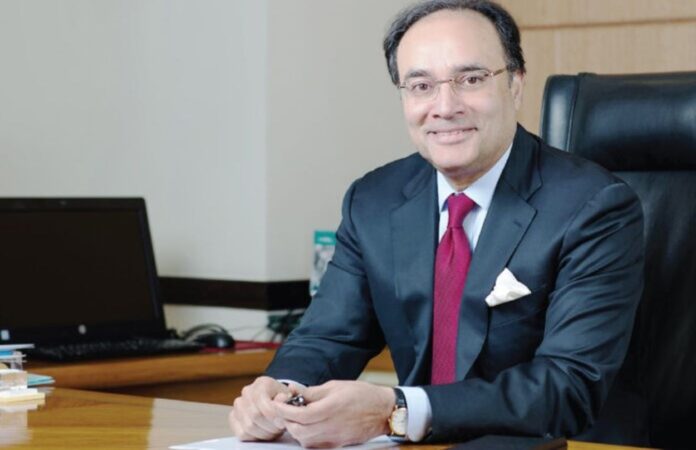Finance Minister Muhammad Aurangzeb said that over 150,000 retailers have been registered as first-time taxpayers, marking a significant milestone in the government’s efforts to widen the tax base.
The finance minister said this during a virtual meeting with Fitch Ratings, represented by Senior Director Thomas Rookmaaker and Directors Krisjanis Krustins and Jeremy Zook.
During the fiscal year 2024, the Finance Minister highlighted a 30% increase in tax collection compared to the previous year, underscoring the government’s commitment to improving Pakistan’s tax-to-GDP ratio through ongoing fiscal consolidation efforts.
Aurangzeb also detailed several economic achievements including IT exports surpassing US$3 billion, foreign exchange reserves reaching US$9.4 billion, a robust performance by the stock exchange, and a Consumer Price Index inflation rate of 12.6% in June 2024. He further noted a 7.7% increase in foreign remittances.
The discussion extended to Pakistan’s economic landscape following the successful completion of a 9-month Stand-By Arrangement with the International Monetary Fund (IMF), which Aurangzeb credited for positive changes in the country’s macroeconomic indicators.
Reforms in the energy sector and state-owned enterprises were also discussed, focusing on privatization and rightsizing to enhance operations and governance. The Finance Minister informed Fitch Ratings about the confidence of multilateral institutions in financing Pakistan’s projects, highlighting a newly finalised Staff-Level Agreement with the IMF for a medium-term program that aims to reinforce the country’s economic reforms.
Key elements of the new IMF program include ambitious revenue targets, aiming for an increase of 1.5% of GDP in fiscal year 2025 and 3% over the next three years, with a goal to achieve a primary surplus of 1% of GDP.
The representatives from Fitch Ratings acknowledged the government’s ambitious fiscal targets and noted improvements in Pakistan’s economic indicators, signalling a positive outlook on the nation’s fiscal health and economic management strategies.




